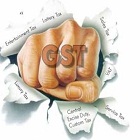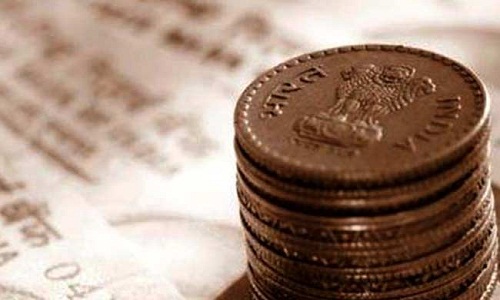"After years of deliberation, the goods and services tax (GST), touted as the biggest tax reform in Indian history since independence, finally saw light. GST is expected to reduce distribution costs of retailers, improve the speed to market and boost overall consumption. And as Kumar Rajagopalan, CEO, Retailers Association of India opines the GST will reduce distribution costs and wastages as cascading effect of taxes will go."

After years of deliberation, the goods and services tax (GST), touted as the biggest tax reform in Indian history since independence, finally saw light. GST is expected to reduce distribution costs of retailers, improve the speed to market and boost overall consumption. And as Kumar Rajagopalan, CEO, Retailers Association of India opines the GST will reduce distribution costs and wastages as cascading effect of taxes will go. And speed to market would increase, as retailers can produce wherever and sell wherever to meet demand of consumers. More importantly, the availability of products will improve.
GST a great leveler

Many in the industry say retailers can centralise their storage and supply chain as GST aims to remove the complexity of multiple state and central taxes and a multitude of exemptions and ensure a seamless flow of input tax credit in the value chain. GST is expected to impact and shape-up India’s $16-billion e-commerce industry. Similar to the European Union, the politico-economic union of 28 states, a singular tax structure across the country will simplify inter-state transfer of goods, ensure merchant compliances and lead to easier tax refunds. For startups, which are already grappling with fund-raising issues, GST will take off the burden of complicated tax frameworks, which are currently different for every state. “E-Commerce companies will not have to struggle with the complex regulatory structure. Moreover, sourcing, distribution and warehousing strategies, which are currently designed by companies from the perspective of minimising the tax liability, will undergo a change,” a Delloite report said.
GST will also boost manufacturing, especially for small and medium enterprises (SMEs). Manufacturers pay 15 types of taxes, which will now be replaced by one tax. In the short term, however, there is likely to be some cost impact. SME manufacturers, currently exempt (if annual taxable turnover is up to Rs 1.5 crore) from paying excise duty, would have to pay the full taxes if GST is implemented.
Meanwhile the man-made textile segment, long neglected by policy makers, finally expects a ‘level-playing field’ vis-a-vis cotton textiles. At present, while man-made fibers attract a 12 per cent excise duty, cotton fibers attract none. This duty disparity has distorted the domestic consumption pattern in favour of the cotton fiber, contrary to the global trend. Although the actual GST rate applicable to textile and garment products will be announced in due course, senior textile industry executives say the current disparity in excise duty rates of cotton and man-made fiber will be ‘erased,’ unless the government decides to give some exemption to cotton fibers. Industry experts expect a GST rate of around 15 per cent, if the peak rate is 18 per cent, arguing that textile and garments are essential items.
According to the noted textile expert DK Nair, who is also an adviser to South Indian Textile Mills Association, man-made fiber-based products will be more competitive vis-a-vis textiles items based on cotton fiber. This will be a good policy push, in sync with the global realities. However, both cotton and man-made fiber are also subject to 4-5 per cent state VAT, which will be subsumed by the GST.
However, if the duty treatment of all cotton and man-made fibers remains the same, prices of textile items made of cotton fiber could raise a tad, Nair added. But equal tax treatment will give a push to man-made fiber production and subsequent exports.
The industry has long been complaining that the duty disparity is preventing domestic producers from scaling up operations and, consequently, hurting India’s export competitiveness in man-made textiles. This is because while man-made fibers account for around 70 per cent of the world’s total fiber consumption, they make up for less than 30 per cent of India’s demand.
Recently, the government announced radical changes to labour laws, apart from some concessions to the garments sector, aimed at boosting exports of textiles and garments by $30 billion over the next three years from $40 billion in 2015-16. Last year, the textile ministry had recommended a reduction in the excise duty for the man-made textile sector to 6 per cent from the current 12 per cent. But, such a step was never approved by the government.
GST is a comprehensive tax levied on manufacture, sale and consumption of goods and services at a national level. Under GST there will be no difference between goods and services. GST tries to eliminate indirect taxes and mitigate cascading or double taxation issues and leads to a common national market, with elimination of state boundaries.
The present cumbersome tax system puts challenges to the manufacturers, distributors and retailers. GST aims to minimise the hitches in double taxation: primarily eradicating cascading tax and smoothing the flow and structure to make it more seamless and organised. GST would also help to restructure interstate transactions. It will focus on streamlining the taxation methods at different levels across all the states in the country and between the states and central government.
J Suresh, MD & CEO-Arvind Lifestyle Brands Ltd & Arvind Retail feels, there are two impacts. One is in terms of the rate, whether the rate will go up or not. It is okay as long as it's up to 18 per cent. The current recommendation is 18-20 per cent only. Since textile is not one of the heavily taxed categories, it could be in the merit rate as well. GST is likely to benefit industries which are largely unorganised.
Implementation of GST will reduce transaction cost of doing business, also reduce food wastage and bring down prices. Hence it will not only bring relief to the consumers, but also help retail sector and building supply-chain efficiencies in India in a big way. This is thus a win-win legislative reform for all.












